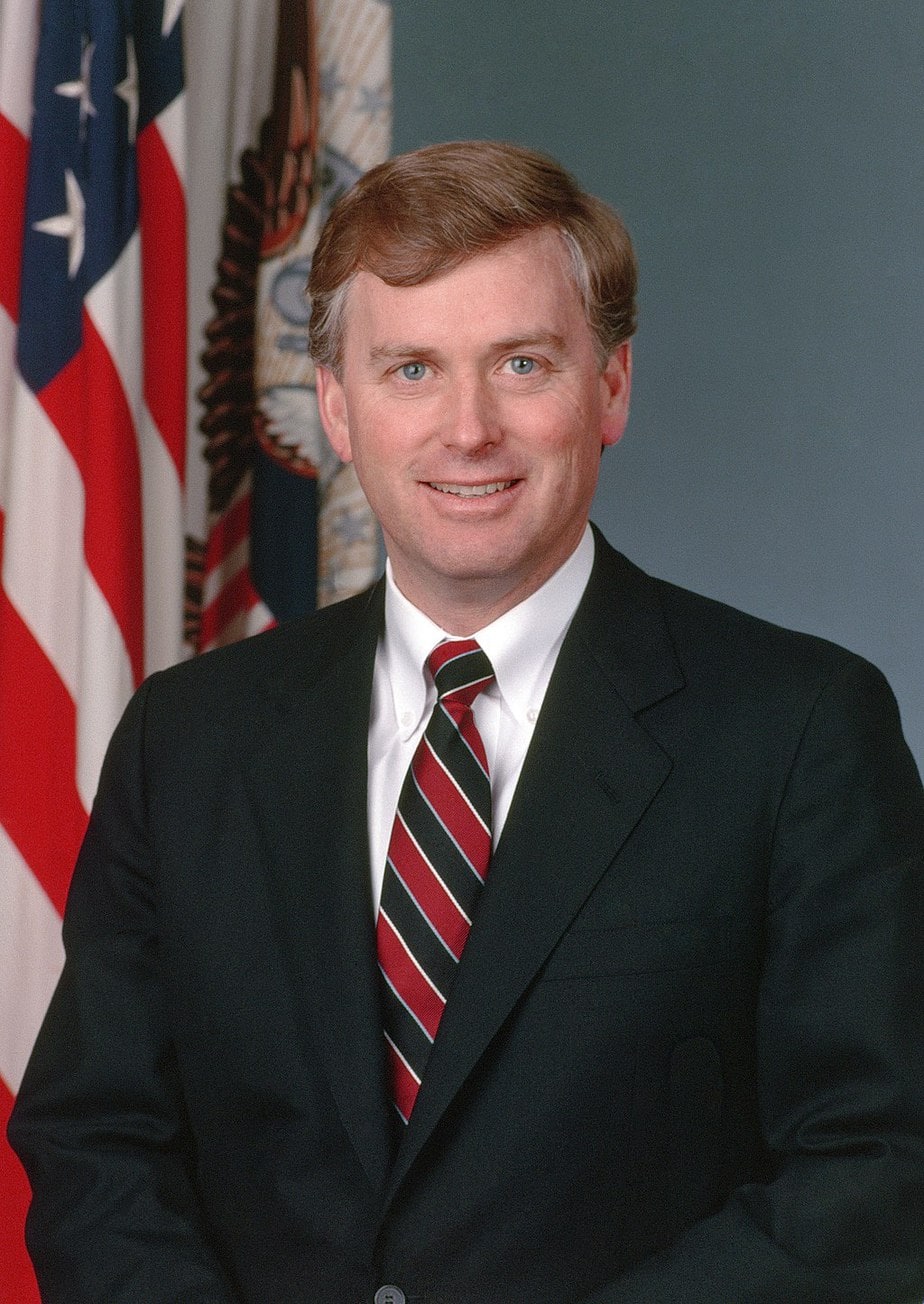Who Is The Youngest Vice President In US History? Exploring The Remarkable Journey
Who is the youngest vice president in US history? This question has intrigued history enthusiasts and political observers alike. The position of Vice President holds immense significance in the United States, and the appointment of a young leader to this role is a testament to their capabilities and potential. In this article, we delve deep into the life, career, and achievements of the youngest vice president in US history, shedding light on their journey to the second-highest office in the nation.
The role of the Vice President is not just a ceremonial one but carries significant responsibilities, including being first in line to the presidency. Understanding the background and qualifications of the youngest person to hold this office helps us appreciate the evolution of leadership in the United States. This article aims to provide a comprehensive exploration of the topic, ensuring readers gain valuable insights into this historical figure's contributions.
From their early life to their political ascent, we will uncover the milestones that defined their career. By examining their achievements and challenges, we can better understand the impact of youthful leadership in shaping the nation's future. Let's embark on this journey to discover the youngest vice president in US history and their lasting legacy.
Read also:Hugh Jackman Relationships A Comprehensive Look At His Love Life
Table of Contents
- Biography of the Youngest Vice President
- Early Life and Education
- Political Career
- Relationship with the Presidency
- Key Achievements as Vice President
- Challenges Faced During Tenure
- Historical Context and Significance
- Legacy and Impact
- Statistical Analysis of Young Leaders in Politics
- Conclusion
Biography of the Youngest Vice President
John C. Calhoun, who served as the seventh Vice President of the United States, holds the title of the youngest vice president in US history. Born on March 18, 1782, in Abbeville, South Carolina, Calhoun demonstrated exceptional intellectual capabilities from a young age. His journey to the vice presidency is a testament to his dedication, leadership qualities, and unwavering commitment to public service.
Personal Information
| Full Name | John Caldwell Calhoun |
|---|---|
| Date of Birth | March 18, 1782 |
| Place of Birth | Abbeville, South Carolina |
| Profession | Statesman, Politician |
| Term as Vice President | 1825–1832 |
Calhoun's tenure as Vice President was marked by significant contributions to national policies and debates. His youthful energy and progressive ideas brought a fresh perspective to the office, influencing the political landscape of the time.
Early Life and Education
John C. Calhoun's early life laid the foundation for his future success. Growing up in a family of modest means, he understood the value of hard work and education. Calhoun attended Yale College, where he excelled academically, graduating with honors in 1804. He furthered his studies at the Litchfield Law School, which prepared him for a career in law and politics.
His formative years were shaped by the political climate of the early 19th century, instilling in him a deep appreciation for the principles of democracy and governance. This early exposure to politics played a crucial role in shaping his worldview and aspirations.
Political Career
Calhoun's political career began in 1808 when he was elected to the South Carolina House of Representatives. His rise through the ranks was rapid, and by 1811, he was serving in the U.S. House of Representatives. Calhoun quickly established himself as a formidable statesman, advocating for policies that promoted national unity and economic growth.
Key Positions Held
- Member of the U.S. House of Representatives (1811–1817)
- Secretary of War under President James Monroe (1817–1825)
- Vice President of the United States under Presidents John Quincy Adams and Andrew Jackson (1825–1832)
Each position provided Calhoun with valuable experience and insight into the workings of the federal government, preparing him for the challenges of the vice presidency.
Read also:Vyvan Lee The Rising Star In The Entertainment Industry
Relationship with the Presidency
Calhoun's relationship with the presidency was complex and often fraught with tension. Serving under two presidents, John Quincy Adams and Andrew Jackson, he navigated the intricacies of presidential politics with varying degrees of success. While his tenure under Adams was relatively smooth, his relationship with Jackson became strained due to ideological differences.
Despite these challenges, Calhoun remained committed to his principles, advocating for states' rights and limited government. His ability to balance personal beliefs with political pragmatism is a testament to his leadership skills.
Key Achievements as Vice President
As the youngest vice president in US history, Calhoun achieved several milestones during his tenure. Some of his key accomplishments include:
- Advocating for the Tariff of 1828, also known as the "Tariff of Abominations," which aimed to protect American industries.
- Authoring the "South Carolina Exposition and Protest," a document outlining the doctrine of nullification, which argued that states had the right to nullify federal laws deemed unconstitutional.
- Playing a pivotal role in shaping the debate over states' rights, which influenced future discussions on federalism.
These achievements highlight Calhoun's intellectual prowess and his ability to influence national policies during his time in office.
Challenges Faced During Tenure
Calhoun's tenure as Vice President was not without its challenges. The political climate of the early 19th century was marked by intense debates over issues such as slavery, states' rights, and economic policy. As a proponent of states' rights, Calhoun often found himself at odds with the federal government and other political leaders.
Additionally, his advocacy for nullification created significant controversy and contributed to the growing sectional divide in the country. Despite these challenges, Calhoun remained steadfast in his beliefs, earning him both praise and criticism from his contemporaries.
Historical Context and Significance
Understanding the historical context of Calhoun's time is crucial to appreciating his contributions as the youngest vice president in US history. The early 19th century was a period of significant political and social change in the United States. Issues such as westward expansion, the rise of industrialization, and the growing sectional divide dominated the national discourse.
Calhoun's role in these debates underscores the importance of youthful leadership in shaping the nation's future. His ideas and policies, while controversial, reflected the complexities of the era and the challenges faced by leaders of his time.
Legacy and Impact
Calhoun's legacy as the youngest vice president in US history is multifaceted. While his advocacy for states' rights and nullification remains a point of contention, his contributions to national policies and debates cannot be overlooked. Calhoun's intellectual contributions and leadership qualities have left a lasting impact on the political landscape of the United States.
Today, historians and scholars continue to study Calhoun's life and career, seeking to understand the complexities of his ideas and their relevance to contemporary issues. His story serves as a reminder of the importance of youthful leadership in shaping the future of nations.
Statistical Analysis of Young Leaders in Politics
Calhoun's appointment as the youngest vice president in US history highlights the trend of young leaders ascending to positions of power. According to historical data, the average age of vice presidents at the time of their inauguration is approximately 53 years. Calhoun, who assumed the office at the age of 43, was significantly younger than his contemporaries.
This trend of young leaders in politics continues to this day, with several notable figures making their mark on the global stage. The rise of youthful leadership reflects the changing dynamics of governance and the increasing importance of fresh perspectives in addressing contemporary challenges.
Conclusion
In conclusion, John C. Calhoun stands as a remarkable figure in US history, holding the title of the youngest vice president in the nation's history. His journey from a young statesman to a key player in national politics is a testament to his capabilities and vision. Through his contributions to policies, debates, and national discourse, Calhoun left an indelible mark on the political landscape of the United States.
We invite readers to explore further articles on our site to gain deeper insights into the lives and achievements of influential historical figures. Your feedback and engagement are invaluable in helping us provide quality content that informs and inspires. Share this article with others who may find it interesting, and let us know your thoughts in the comments below.


